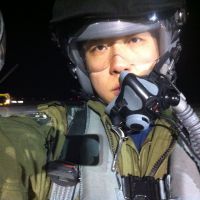Info for International Students
On this page
- What is an international student?
- Will BCS (ICS) consider my application if I'm an international student?
- What are BCS (ICS) tuition costs for international students?
- Can I reduce my tuition costs by living in Canada for a number of months in order to be classified as a permanent resident?
- Will I be eligible for financial aid at UBC?
- What else should I know if I want to participate in the program?
- Will I have any difficulties working on co-op in Canada since I'm not a Canadian citizen?
- Are co-op fees more expensive for international students?
- Could I do my co-op terms in my home country?
- Where can I get more information about being an international student?
What is an international student?
UBC defines an international student as a student who is neither a Canadian citizen nor a permanent resident of Canada.
Will BCS (ICS) consider my application if I'm an international student?
Absolutely! If you meet the admission requirements for UBC as well as for BCS (ICS), then your application will be given full consideration.
What are BCS (ICS) tuition costs for international students?
All BCS (ICS) students pay regular tuition fees for the program. Since international students at UBC are charged substantially more per credit than Canadian citizens or permanent residents, the overall cost of the program will be greater for international students.
The BCS (ICS) program requires a minimum of 63 credits for graduation (i.e. 21 courses, although some courses are worth 4 credits each; so this can bring the total to 70 credits, if you do not have any course exemptions). Please refer to the following link for more information: Undergraduate Tuition Fees, the BCS program is under the Faculty of Science.
If you're interested in converting the cost of the program to your home currency, a good currency exchange rate site can also be found at: https://www.x-rates.com/calculator/. Your bank may charge you slightly more than the current rate listed.
Can I reduce my tuition costs by living in Canada for a number of months in order to be classified as a permanent resident?
Becoming a permanent resident of Canada is not based on length of residency. Rather, it requires a formal application to Citizenship and Immigration Canada. It is a difficult and costly process, with eligibility largely based on your previous education and work experience. Even if you are eligible, it will likely take between 12 and 18 months for your application to be processed and approved. Thus, you should not count on reducing your tuition costs in this manner.
Will I be eligible for financial aid at UBC?
Please refer to Student Services Financial Support Options for information.
What else should I know if I want to participate in the program?
You will have to obtain a study permit from Immigration, Refugees and Citizenship Canada (IRCC). You will need to gather required documents and ensure your study permit application is well prepared and organized. On UBC’s International Student Guide, there are online tutorial and Canvas course on how to apply for initial study permit with step-by-step instructions for new international students. It is important to follow the instructions to avoid any mistake that may cause delay or refusal. There is a team of immigration specialists in International Student Advising. If you have any questions or need assistance in applying for a study permit, visa or work permit, simply use their web form to contact them.
Will I have any difficulties working on co-op in Canada since I'm not a Canadian citizen?
No. All foreign students who have student visas and who are participating in co-op can apply for a work permit. You should apply for the work permit at the beginning of Academic Term III.
Are co-op fees more expensive for international students?
No. Co-op fees are currently the same for both Canadian citizens/permanent residents and international students (see Program, Course, and Faculty Fees section in the UBC Calendar).
Could I do my co-op terms in my home country?
This is a possibility, but would have to be discussed with and approved by your co-op coordinator.
Where can I get more information about being an international student?
Please refer to the International Student Guide, or look up contact information for an international advisor at: International Student Advising | Student Services (ubc.ca)




